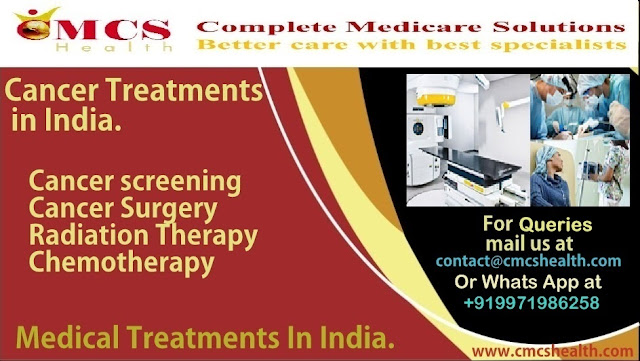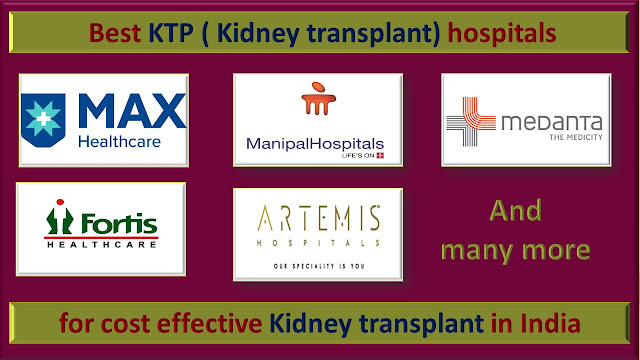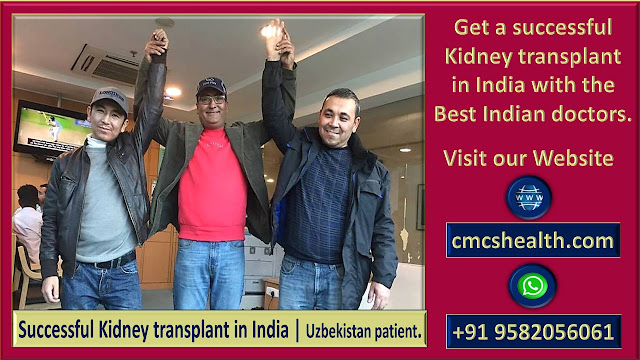Medical Treatments in India with Best Doctors in Best Indian Hospitals.
The two major reasons for kidneys going bad are uncontrolled high blood pressure and uncontrolled high blood sugar ( diabetes ).
There are several other reasons for deterioration of kidney function.
Loss of kidney functions may be acute and chronic.
Acute kidney function failure is generally reversible but Chronic kidney disease is non reversible.
Cultivating these habits will help you in keeping your kidneys healthy.Keep yourself well Hydrated:
One important function of kidneys is to filter toxins, waste products and other unwanted compounds from the blood. Drinking less than required water will make your kidneys congested and calcified.
Ideal water intake would be 6 glasses of water at different intervals throughout the day. For those who are living in hot and humid climate where they perspire more or those who are are involved in strenuous exercises or work should drink at least 8 glasses of water during the day, everyday.
Coffee, black tea , soda or soft drinks and other caffeinated drinks work as diuretics and trigger frequent urination, therefore they are not good source of fluid intake.
Filtered water and fresh fruit and vegetable juices are better choices for keeping you hydrated.
Holding Urine for long:
This may sound odd, but almost all of us do it frequently. It is better to answer the call of nature, when it calls. Holding back urine for long duration is never good for healthy kidneys.
Maintain healthy blood pressure:
A continuously elevated blood pressure is damaging to blood vessels throughout the body that includes arteries in kidney. A damage to arteries and blood vessels of kidney hampers the filtering abilities of kidney. Eating low salt, low fat diet, keeping stress levels low and a regular healthy life styles including regular exercises and avoiding being obese helps in maintaining normal blood pressure.
In case if it does not help, your doctor may prescribe BP controlling medications to keep your BP in check.
Keeping Diabetes at Bay:
You are at a greater risk of developing a kidney disease, if you are diabetic.
As per the studies and data, about 30 % of patients of Type 1 diabetes ( Juvenile diabetes) and 10 to 40% of patients with Type 2 Diabetes will eventually suffer from Kidney disease.
Diabetes patients suffer injuries to blood vessels throughout the body, including kidneys. When blood vessels in kidneys are damaged, kidneys loses its ability of filtering the toxins and waste products.
Diabetes also causes damage to nerves therefore a diabetic person may have difficulty in emptying the bladder, The reverse pressure of full bladder can damage the kidneys.
When urine is retained longer in bladder , a kidney patient is prone to frequent UTIs because bacteria thrive in urine having higher blood sugar concentration.
Keeping a regular check on your diabetes help in protecting your kidney function.
Take oral medicines and insulin prescribed by your doctor regularly to keep diabetes at bay.
Eat Healthy:
A good diet for healthy kidney should consist of low fat , low sugar ,low salt ,low potassium and iron rich. It should be a balanced diet with more nutrition and should consist of plenty of greens and fruits. Many servings of red meat and processed meat are harmful to kidneys. Animal meat servings should be replaced with plant based proteins for protein intake . There are studies suggestive of higher red meat and animal meat consumption with increased risk of developing kidney diseases.
Kidney friendly foods are red bell peppers, cabbage, cauliflower, garlic, onion ,
apples, blueberries, cranberries, strawberries, raspberries, red grapes, cherries,
egg whites, fish and olive oil.
apples, blueberries, cranberries, strawberries, raspberries, red grapes, cherries,
egg whites, fish and olive oil.
Exercise Regularly:
Regular exercise keeps your weight in check, increases blood circulation and helps in controlling blood sugar and blood pressure and cholesterol. Even brisk walking for forty minutes a day is a very good exercise. A good exercise session also helps you in being stress free and helps in getting a proper sleep pattern.
Sleep Well:
A good timely sleep is import for your kidney's health. Those who slept five hours or less in night have 65% higher risk of deterioration of kidney function as compared to their peers who get seven to eight hours of night sleep.
Cutting down on caffeinated drinks after two pm reduces the risk of being insomniac.
Using electronics gadgets at night time also hampers sleep pattern.
Quit smoking , Cut down on your Alcohol Consumption:
Smoking increases blood pressure and heart rate, increases production of angiotensin II in kidneys, narrows the blood vessels in your body including the kidneys, is responsible for thickening and hardening of renal arteries and thus reduces the blood flow to kidneys. Smoking hastens the loss of kidney function.
Quit smoking, you can seek medical help for quitting smoking.
Quit smoking, you can seek medical help for quitting smoking.
Excessive alcohol consumption can have profound negative effects on the kidneys and their function in maintaining the body's fluid, electrolyte, and acid-base balance. This leaves alcohols vulnerable to many kidney-related health problems. Hepatorenal failure refers to the most frequent and gravest condition in which the kidneys are damaged. It occurs in a person who has cirrhosis of the liver from long-term heavy alcohol consumption.
Painkillers and OTC Medicines usage should be with caution:
Overusing Painkillers and other over the counter that is non prescribed medicines for long duration have a detrimental effect of the functioning of kidneys.
Go for periodic Kidney function test if you are in high risk group:
Go for a periodic kidney function test if you are in higher risk group. Consult with your nephrologist if certain abnormalities are found in the tests. Doctors can delay the progression of loss of kidney function with medication and a strict diet chart if it is not possible to reverse it.





































